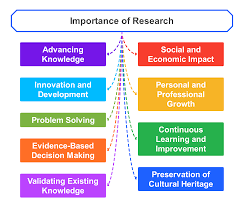Back to: MICROBIOLOGY 200 LEVEL
Welcome to class!
Hello there, superstar! How are you doing today? I hope you’re ready for another exciting learning experience with Afrilearn. You are doing amazingly well, and I’m so proud of your progress. Today, we’re going to take a step further into understanding something very important in Microbiology — something that sets the foundation for everything else we’ll learn. Let’s get started!
Definition Of Microbiology
Imagine a world so small, so tiny, that you need a special lens — a microscope — just to see it. That’s the world of microbiology! Microbiology is the branch of science that deals with the study of microscopic organisms. These organisms are so small that you can’t see them with your naked eye. You need a microscope to observe them. They include bacteria, viruses, fungi, protozoa, and algae.

These tiny living things, though invisible to the eye, play very big roles in our lives — both good and bad. They live in the air we breathe, the water we drink, the soil we walk on, and even in our own bodies! Yes, your body hosts millions of microbes at this very moment. Some of them help you digest food, while others protect you from falling ill.
So, microbiology helps us understand who these microorganisms are, how they behave, how they affect us, and how we can use or control them.
Importance of Microbiology
Now, you may be wondering, “Why should I care about these tiny things?” Great question! Microbiology is very important in several areas of our daily lives:
1. Medicine: Without microbiology, there would be no antibiotics, vaccines, or knowledge of how diseases spread. Doctors rely on microbiologists to understand infections and how to treat or prevent them. For example, during the COVID-19 pandemic, microbiologists played a key role in identifying the virus and developing vaccines.
2. Agriculture: Microbiology helps farmers improve soil fertility and fight plant diseases. There are good microbes in the soil that help crops grow better. Nigerian farmers use these beneficial microbes to get higher yields, especially in states like Benue and Kaduna.
3. Food Industry: Ever eaten yoghurt or kunu? These drinks are made using fermentation, which involves microbes. Microbiology helps keep our food safe, and it also helps produce delicious, nutritious fermented foods.
4. Environment: Microbes clean up oil spills and break down waste. Think of Lagos Lagoon — microbes help reduce pollution in such water bodies.
5. Biotechnology: From producing insulin for diabetic patients to making biofuels, microbiology is key to solving many modern problems.

6. Research and Education: Microbiologists also work in universities and labs, helping us understand the world better and train the next generation of scientists — like you!
Summary
Microbiology is the scientific study of microorganisms — tiny life forms that are all around and inside us. It is crucial in medicine, agriculture, food production, environmental protection, and biotechnology. It helps us understand how these microorganisms work and how we can benefit from or control them to make our lives better.
Evaluation
- What is microbiology in simple terms?
- Mention two ways microbiology is important in agriculture.
- Name three fields where microbiologists work.
- Give one example of how microbes help in food production.
- Why is microbiology important in medicine?
I’m really proud of how far you’ve come today. You’ve just laid the foundation for your Microbiology journey. At Afrilearn, we believe in your greatness, and we are here to help you shine brighter every day. Keep learning, keep growing, and I’ll see you in the next exciting lesson
